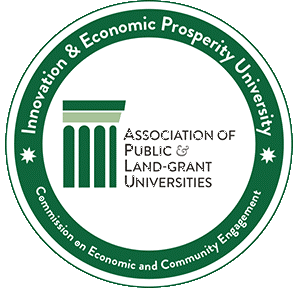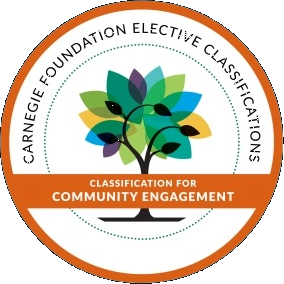2024 Recipients
Community-Engaged Research
María Alejandra García, College of Agriculture and Natural Resources
Maria Alejandra Garcia Otero’s research focuses on advancing gender equality, the fifth UN Sustainable Development Goal. She worked with Corporación Mundial de la Mujer Colombia (CMMC) to explore its gender development programs in Colombia, focusing on how they foster rural empowerment and challenge gender norms. As part of her dissertation, Garcia Otero collaborated with CMMC and her advisor on a research and intervention proposal aimed at empowering rural women at the collective level by transforming gender norms and addressing the roots of inequality.
Community-Engaged Service and Practice
Farish Jazlan, College of Engineering
Michigan has the second-longest coastline after Alaska, with approximately 15,000 residents inhabiting the five most populous islands. Island residents expect to have equal access to work, health care, emergency services, and economic opportunities as mainland residents. Funded by the Michigan Department of Transportation, the project’s main objectives were to identify mobility gaps for island residents and determine how authorities can intervene. The study’s outcomes included insight into existing ferry operations, mobility gaps, and maintenance/funding needs. Farish Jazlan and the project team proposed strategic recommendations for MDOT on how state and federal authorities can address island residents’ welfare and mobility needs.
Community-Engaged Teaching and Learning
Taylor Elyse Mills, College of Arts and Letters
Most Michigan-based legal practitioners lack adequate training in Tribal laws; this in turn marginalizes Tribes and Native law students. Taylor Elyse Mills sought to address these issues in partnership with the Little Traverse Bay Bands of Odawa Indians and the Tribal State Federal Judicial Forum in Michigan. Their research identified Tribal law that students need to know and how to develop a pedagogical approach that incorporates DEI and avoids tokenism. Mills compiled a Tribal Law Handbook. The handbook will serve as resource to prepare Michigan legal practitioners for work with Tribes and to demarginalize Tribal communities in legal education.









